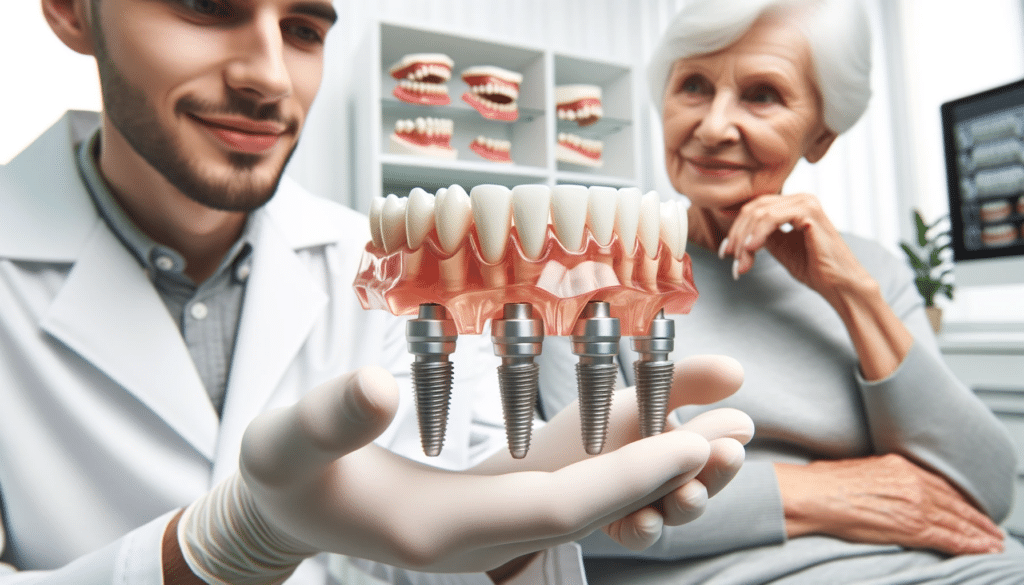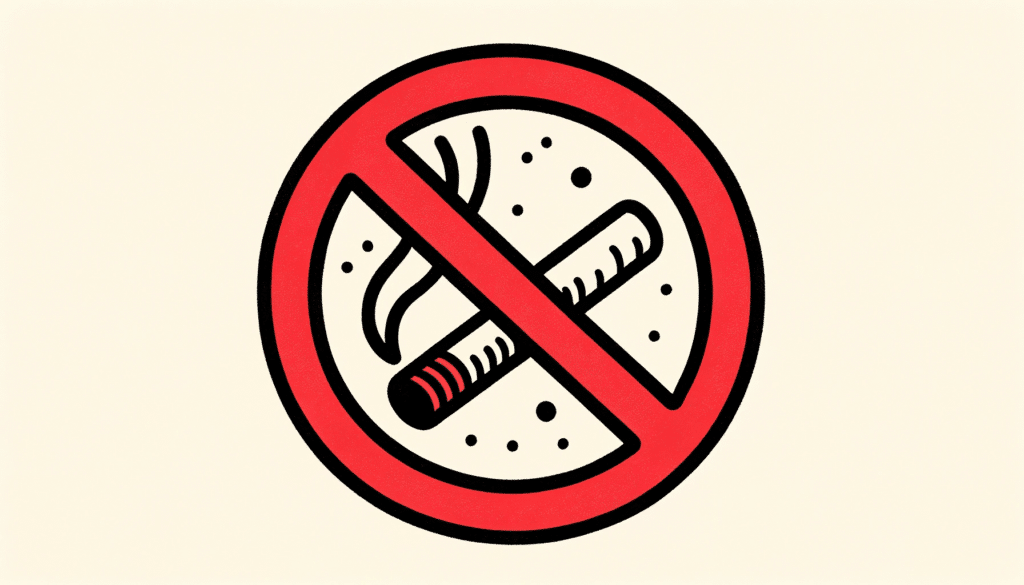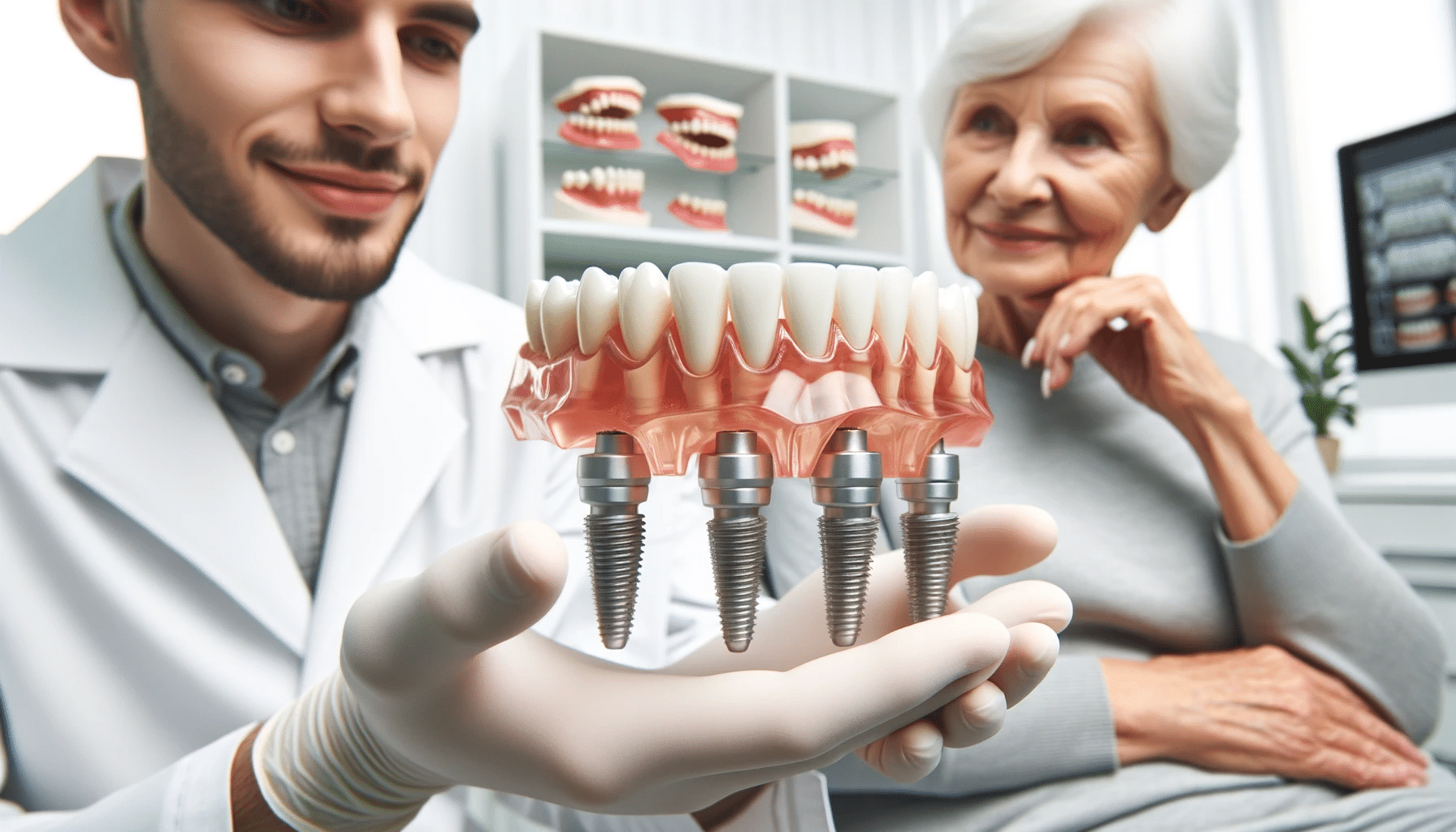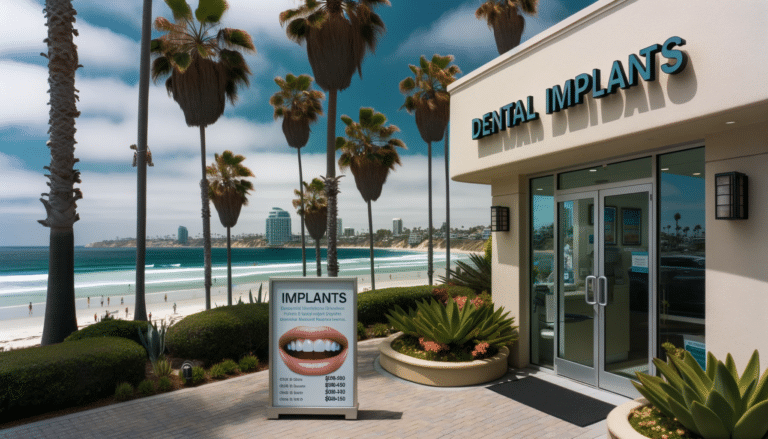Who is Not a Candidate for All-on-4 Dental Implants?
Dental implants have come a long way in recent years, with All-on-4 dental implants becoming a popular choice for those seeking to replace missing teeth or stabilize loose dentures.

This innovative procedure involves placing just four implants in each arch to support a full set of replacement teeth, offering a more cost-effective and efficient solution for individuals with missing or severely decayed teeth.
Getting All-on-4 dental implants does have a very high success rate. However, not everyone can take advantage of the All-on-4 implant system.
Understanding the factors that make someone a poor candidate for All-on-4 implants is crucial in determining your eligibility for this procedure.
Some individuals may have underlying health issues that could affect the success of the implant surgery or hinder the healing process. For instance, people with uncontrolled diabetes, high blood pressure, or autoimmune disorders may not be ideal candidates for All-on-4 dental implants.
Additionally, those undergoing radiation therapy near the jaw area or suffering from severe oral diseases like gum disease will require treatment for these conditions before considering All-on-4 implants.
By taking these factors into account, you can better assess whether All-on-4 dental implants are a suitable solution for your specific dental needs.
Who Is Not a Candidate for All on 4 Dental Implants?
Gum Disease
If you suffer from advanced gum disease, it may prevent you from being a good candidate for All-on-4 dental implants. Gum disease not only affects the soft tissue, but it can also lead to bone loss in your jaw.
Adequate jawbone density is crucial for successful implant placement. Before proceeding with the procedure, your dentist will need to address and treat severe periodontal diseases.
Bruxism
You may not be a suitable candidate for All-on-4 dental implants if you suffer from bruxism. Bruxism is the act of grinding or clenching teeth, which can eventually wear down your natural teeth and potentially cause damage to dental implants. It is essential to seek treatment for bruxism to prevent implant failure.
Weak Immune System
Individuals with a weak immune system, for example, due to autoimmune conditions or other underlying health issues, may have difficulty healing after the implant surgery.
The titanium screws used in dental implants need time to properly osseointegrate with your jaw bone. A compromised immune system can make it challenging for your body to heal successfully.
Diabetes
Uncontrolled diabetes can complicate the All-on-4 dental implant procedure. High blood sugar levels can affect the healing process and increase the risk of infection after surgery. It is crucial to have your diabetes managed and under control before considering dental implants.
Smoker / Tobacco User

If you are a smoker or use tobacco products, your success rate for All-on-4 dental implants may be lower compared to non-smokers. Dentists generally advise quitting smoking during the implant procedure and throughout the healing process to minimize the risk of implant failure.
Bone Loss
Significant jawbone loss can affect the stability of dental implants. While All-on-4 dental implants do not require the same amount of bone density as traditional implants, some patients with extensive bone loss may not be ideal candidates. In such cases, bone grafting or other treatments may be necessary.
Some Medications
Certain medications, especially those affecting bone density or blood clotting, can pose a risk for All-on-4 candidates. For example, long-term use of steroids can weaken the jawbone, while blood thinners can increase the risk of bleeding during the procedure.
It is important to discuss your medical history and any medications you take with your dentist before moving forward with the treatment plan.
Have (or Have Had) Radiation Therapy
Lastly, if you have had radiation therapy in your head or neck region, it may disqualify you for the All-on-4 dental implant procedure. Radiation can inhibit the ability of bone and soft tissue to heal, making it difficult for dental implants to properly integrate with your jawbone. It is crucial to discuss your medical history with your dentist and explore the possibility of alternative treatments if needed.
Who Does Make a Good Candidate for All on 4 Implants?
Are in Good General Health
For a successful All-on-4 dental implant procedure, it’s essential that you are in good general health. This means that you don’t have any serious health issues that might affect the success of the treatment, such as uncontrolled diabetes or high blood pressure which could slow the healing process.
Have Good Oral Health
Good oral health is vital for the long-term success of dental implants. Before considering All-on-4, your dentist will assess your teeth and gums for any signs of infection or disease. Any existing oral health issues must be treated before the implant procedure is undertaken to ensure the success of the treatment.
Missing Most or All Teeth on One or Both Arches
All-on-4 implants are designed for individuals who are missing most or all of their teeth on one or both arches. This treatment provides a full row of replacement teeth that are supported by just four dental implants, allowing for a quick and efficient solution for those with significant tooth loss.
Non-Smoker
Non-smokers are ideal candidates for All-on-4 dental implants, as smoking can slow down the healing process and increase the risk of infection. In addition, smoking can have an adverse effect on the osseointegration process, which is the fusion of the titanium implant with the jawbone.
Have Good Jawbone Density
Good jawbone density is crucial for the stability and success of dental implants. In some cases, if the bone density is insufficient, a bone graft may be necessary before the All-on-4 procedure. Your dentist will conduct an assessment using x-rays and other scans to determine if your jawbone is strong enough to support the implants.
Conclusion
In summary, being in good general and oral health, missing most or all teeth on one or both arches, being a non-smoker, and having good jawbone density are the key factors that make you a suitable candidate for All-on-4 dental implants.
Discuss with your dentist if this treatment is the best option for your dental needs, ensuring a healthier and more functional set of teeth that can boost your confidence and quality of life. If you are, check out this article to see if All-on-4 dental implants are worth the cost.








